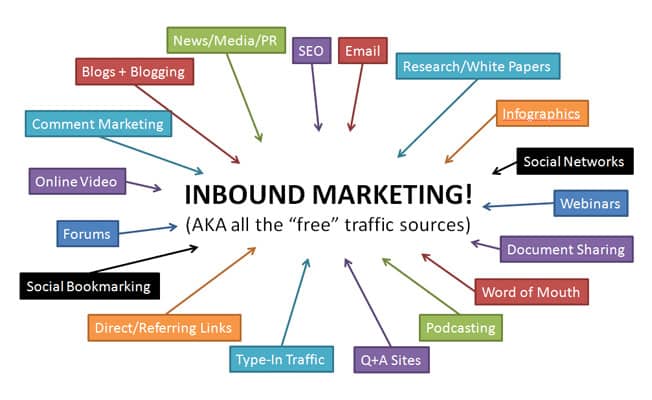Introduction: SEO is the process of improving your website’s visibility on search engines. It includes things like optimizing your content, developing a good back-end, and creating keywords for your site. In this starter guide, we’ll take a look at all the basics of SEO and how it works.
What is SEO?
SEO is the practice of optimizing a website for search engine ranking. It can be done through on-page, off-page, or both. On-page SEO is the process of improving the appearance of a website in relation to search engine results pages (SERPs). This may include creating keyword rich titles, descriters, and meta descriptions, as well as developing effective link building techniques. Off-page SEO includes modifying site content and behavior in order to improve web traffic and Organic Search Rankings (OSR) – which are determined by how many people have found a page from an organic search result based on their Google AdWords spending history).
What are the Three Components of SEO?
On-Page Component
On-page SEO involves improving the look and feel of a website in relation to SERPs. This may involve constructing keywords rich titles, descriptors, and meta descriptions, as well as developing effective link building techniques.
Off-Page Component
Off-page SEO includes modifying site content and behavior in order to improve web traffic and OSR – which are determined by how many people have found a page from an organic search result based on their Google AdWords spending history).
SEO is the Practice of Making Your Website rank Higher in Search Engine Results Pages (SERPs).
SEO is the practice of making your website rank higher in SERPs. When a website is ranked higher, it means that people are more likely to click on its links and see the site’s content. This can lead to more business for you, as well as better visibility for your website in search engine results pages (SERPs).
There are a few things you need to do in order to optimize your website for SEO:
How Do You Optimize Your Site for SEO?
1) Make sure all of your website’s elements are compatible with Google’s data-driven algorithm
2) Use keyword research and exclude any keywords that don’t have high enough competition
3) Place your site inside of relevant directories and articles
4) Optimize images and videos so they look good on both mobile devices and desktop computers
5) Avoid using duplicate content or other websites in place of unique content
6) Get your website onto popular social media platforms like Facebook, Twitter, and Instagram
7) Use an SEO agency to help you with all of the above
Once you’ve made some changes to your website for SEO, it’s time to test them out. Go ahead and make a few changes to see how they impact your site’s ranking in SERPs. You can also use Google Adwords or other search engine optimization techniques to boost your site’s ranking even further.
SEO is the Practice of Optimizing Your Website for Google and Other Web search engines.
SEO is the practice of optimizing your website for Google and other search engines. This means making your website look better on search engines so that more people can find it. SEO can be done on your own website or through a third-party service.
The biggest benefit of using SEO to improve your website’s visibility online is that it will increase the chances that you will show up in search results when someone searches for information about your business or product. Additionally, SEO can help you get more visitors to your site from Google and other Web search engines, which can lead to increased business traffic and profits.
SEO is the Practice of Making Your Site Morevisible on the Web.
SEO is the practice of making your site more visible on the web. It’s the process of improving your website’s visibility so that visitors can find it easier to visit and find what you offer. The goal is to make your site as search engine friendly as possible so that people can find what they’re looking for faster and without having to search through a lot of different content.
SEO work starts with creating a high-quality SEO title and meta descriptions. These are important because they help generate links from other websites to your site, which will then help improve your ranking in Google. Once your site has a good rank, you need to focus on increasing the number of content pages on your website and developing interactive features that will engage visitors. Finally, make sure you have a well-branded and designed website—all of which will help increase traffic to your site and boost profits.
SEO is the Practice of Optimizing Your Site for Adoption by other Web Sites.
SEO is the practice of optimizing your site for adoption by other websites. This includes improving the visibility and search engine ranking of your site, as well as reducing the amount of time it takes for visitors to find you. SEO can be done through a number of methods, including content writing, design, and on-page optimization (including HTML5 and CSS3 formatting).
What is SEO and How Does SEO Work?
SEO stands for “Search Engine Optimization.” SEO is the process of improving a website’s visibility in search engine results pages (SERPs). The better a website is ranked, the more likely it is to be seen by potential and current customers.
The first step in SEO is finding the right keywords. Keyword research is important because it determines which words and phrases are most relevant to your website and your target audience. Once you have a good list of keywords, you can begin to search for them on Google, Yahoo! Search, and other online search engines.
Once you have selected some relevant keywords, you need to create effective content that will help your website stand out from the rest. This content should be well-written, informative, and engaging. Finally, make sure all of your website content is updated regularly so that it remains fresh and relevant to your target audience.
What are the Differences Between Paid and Organic Search?
Search engines are a part of the online advertising ecosystem and play an important role in helping websites rank higher in search results. Paid search is when a company pays a website to place ads on its pages, while an organic search is where the website does not pay for placement. Organic search engine ranking is determined by how many people click on a link from a website, rather than whether the link was paid for or not.
Traffic Share
The traffic share is the percentage of total traffic that an organic search engine receives from a given website. This statistic reflects how much of the traffic brought about by visiting a site comes through organic means, rather than through paid advertising or other methods.
Time
The time it takes for an organic search engine to index a page is also important to consider when gauging how well an organization is performing in terms of rankings and customer satisfaction. Slow timelines can reflect poorly on an organization if they are looking to garner positive feedback from their potential customers.
Investment
Organicsearch also requires some investment in order to maintain high rankings and generate qualified traffic. This can range from setting up better servers and optimizing your content for organic searchers, to paying for lead gen campaigns and targeted marketing efforts.
What are the Similarities Between Paid and Organic Search?
Paid search is a type of search where websites pay others to produce ads that are shown to users in connection with the results of a requested search. organic search, on the other hand, refers to searches that are not paid. Organic search does not rely on external partners like Google or Yahoo! to produce results, but rather on the user’s own efforts in conducting a search.
Traffic
traffic is how many people are looking for a given keyword or phrase on a website. Paid and organic search engines differ in how they measure traffic – paid engines often track clicks and other measures while organic search engines may only look at the number of results returned. When it comes to driving traffic through paid search or organic routes, well-measured keywords and effective landing pages are key factors.
How Does SEO Works Technically?
Search engine optimization (SEO) is the process of improving a website’s visibility in search results. It does this by creating a good mix of keyword density and organic search traffic, which is real-world traffic that has not been paid for by a commercial organization. Organic traffic refers to visits from people who know about your website and decided to click through to it because they think it has something valuable to offer.
Have a Long-Term Investment Strategy.
The first step in any SEO project is to develop a long-term investment strategy. This means understanding the different types of SEO projects and how each will impact your business. After you’ve determined what type of SEO project you need, it’s important to determine how much money you can afford to spend and when you should start working on the project.
When it comes to SEO, there are many factors that must be taken into account: traffic, budget, time frame, competition, and more. The best way to determine these factors is by researching each one of them carefully before starting any project. Once you have a good idea of what you need and when you need it, it’s important to work with an experienced SEO company who will help you achieve your desired results.
Diversify Your Investments.
SEO (search engine optimization) is the practice of improving a website’s visibility in search results. It can be done through a variety of methods, including paid and organic search traffic, link building, and social media marketing.
Paid search traffic refers to traffic that a website receives from external sources (such as Google or Facebook), rather than from its own users. Paid search engines like Google AdWords allow you to target specific individuals or businesses with ads based on their location or interests. Paid search traffic is growing more popular every day, and it can play an important role in driving website growth.
Organic search traffic, on the other hand, refers to traffic that comes from within the site itself. This type of search engine result means that the site has been visited by humans rather than via a computer program. Organic search engines like Yahoo! and Bing are becoming more prevalent every day, as they provide a better way for websites to find relevant content and customers. Organic search traffic can help you build credibility with potential customers and increase website revenue.
Why Does SEO Matters to Search Engines?
Search engines are the engines that help you find your website and determine which pages of your website are most likely to be visited by humans. When a search engine sees your website as the best candidate for inclusion in its search results, it’s called “SEO friendly.”
SEO is the practice of optimizing your website so that it appears higher in search engine rankings. Many different factors can contribute to site ranking, including how well your site blends in with other websites, how fresh and interesting your content is, and how well you use keywords on your site.
Google has released a set of guidelines known as the Google AdWords Guidelines (https://adwords.google.com/rules), which play an important role in SEO. And even though Google’s guidelines may not always be followed strictly, they provide a good starting point for any online business looking to improve their ranking in SERPS.
How Do Search Engines Work?
Search engines crawl the web looking for relevant content. When they find it, they index it and send the information to your computer. Your computer then uses that information to create a search result for you.
Indexing (the Step of Filing
Your computer indexes the websites you visit by creating an index file. This file contains all the pages on the website, as well as any images, videos, or other content that may be on them. Your computer then uses this index to look for content that’s related to what you’re looking for on your site.
Ranking (the Step of Retrieval)
Your computer ranks websites according to how likely it is that you will find what you’re looking for on them. The higher the ranking, the more likely it is that people will actually see your page when they search for information on the internet.
What is SEO and how does it work?
SEO is the process of improving a website’s visibility on the internet by optimizing it for search engine optimization (SEO). PPC, or pay-per-click, is a marketing technique used to promote products or services on websites.
What are the important factors affecting SEO rankings?
SEO is the process of improving a website’s visibility on search engines. It often includes optimizing the website for better indexation, including making sure all pages are well-written and properly formatted and using relevant keywords in the content of websites.
Conclusion
SEO is the practice of making your website rank higher in search engine results pages (SERPs). It involves optimizing your website for Google and other web search engines, as well as creating a promotional strategy. Additionally, it’s important to have a long-term investment strategy in order to ensure that your site remains at the top of the search engine results pages (SERPs). By diversifying your investments, you can maximize your chances for success. Additionally, many people find SEO helpful in improving their website’s visibility on the web.














